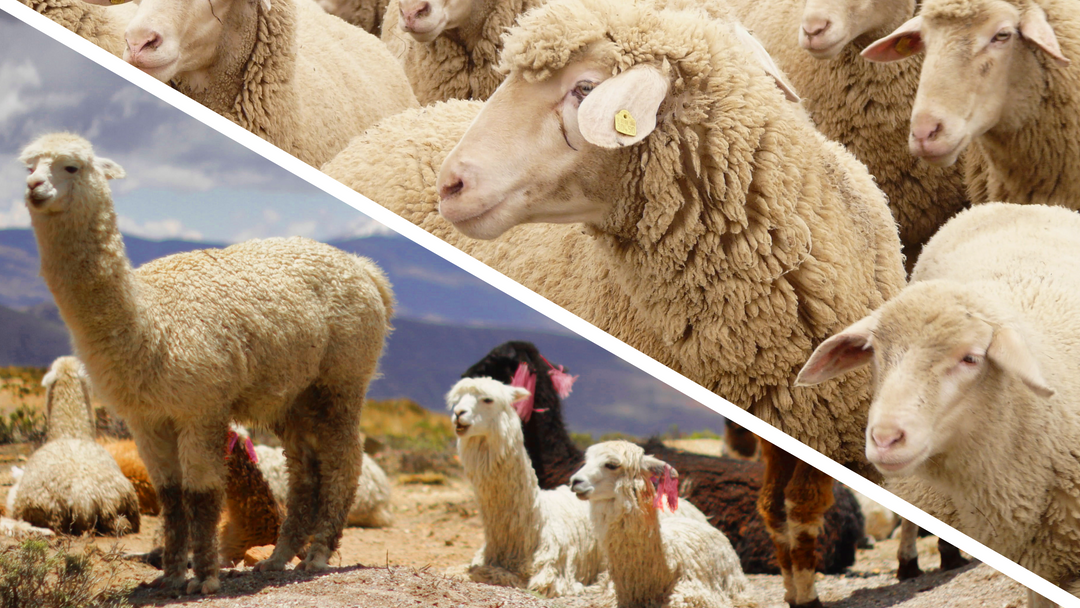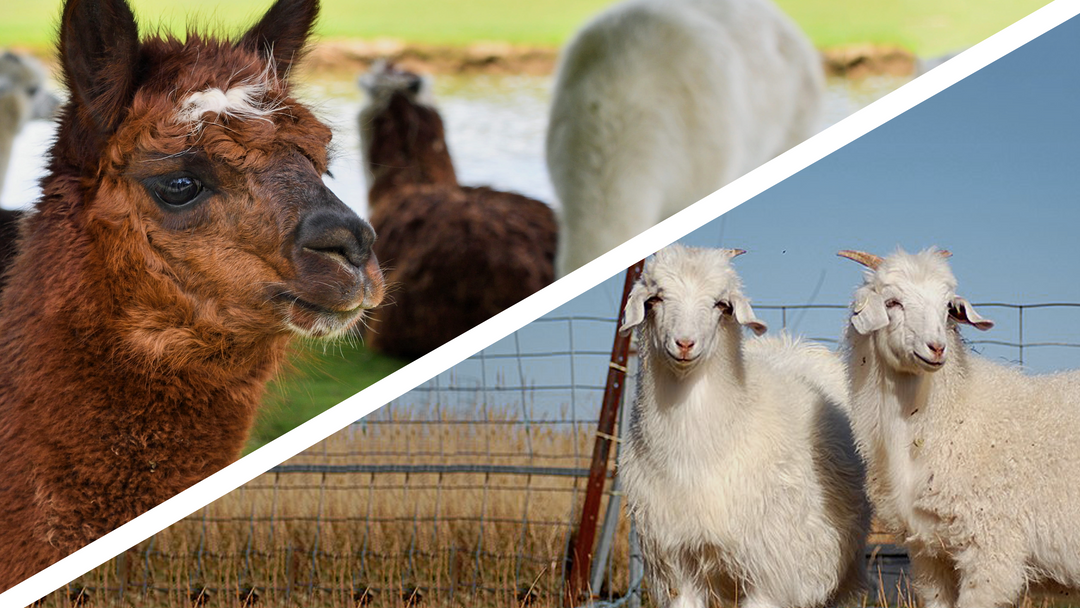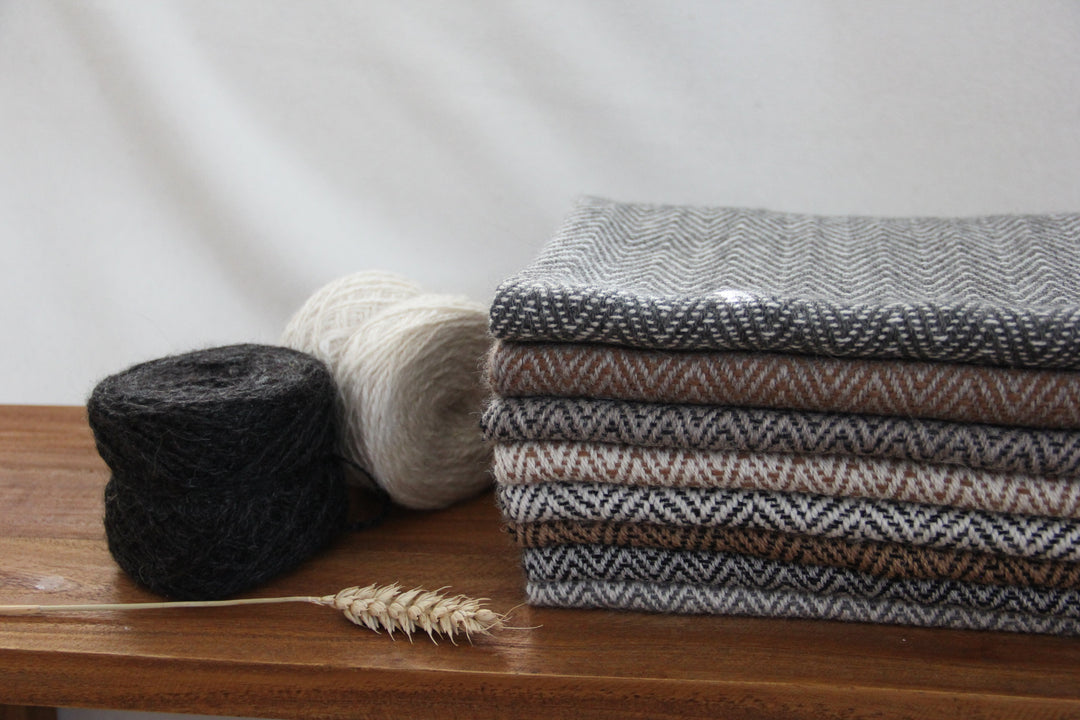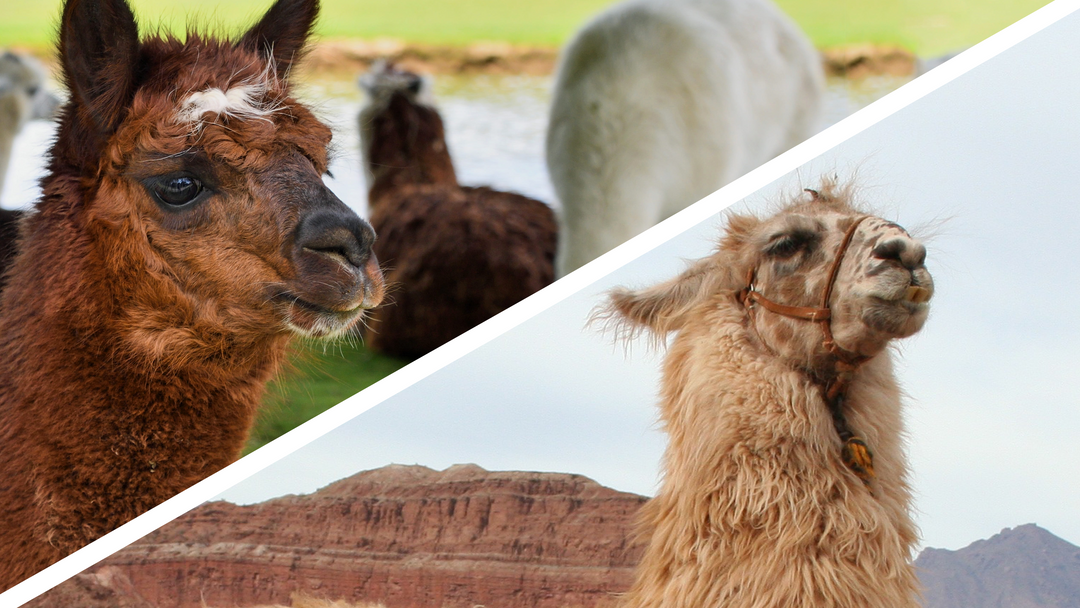In our ever-evolving world, the pursuit of sustainability and environmental sustainability is becoming increasingly important. These principles have radically changed the way we consume and the products we choose. And when it comes to clothing and accessories made from natural fibres, we have an impressive choice. Alpaca wool, cashmere, merino wool and cotton are just some of the high-quality materials available to us. But how does alpaca wool compare to these other natural products? And is it the better choice for you?
What is alpaca wool?
Alpaca wool is a natural product that comes from alpacas, a camelid native mainly to the Andes Mountains of South America. These beautiful animals provide one of the softest and most luxurious fibres you can find.
At Andes Alpaca, we use only the finest alpaca wool, known for its exceptional softness, warmth and breathability. Alpaca is also known for its natural water and dirt repellency. Our products are all lovingly handmade by talented artisans and craftswomen from the Andes. They use traditional techniques that have been passed down from generation to generation, and we place great emphasis on attention to detail and using the finest materials in each and every product.
If you're interested in experiencing the benefits of alpaca wool for yourself, take a look at our exclusive selection of alpaca products in our shop. From luxurious scarves and hats to cosy blankets and ponchos - you'll find everything your heart desires in our shop.
Alpaca wool and sustainability
Sustainability is an important issue in today's society. Therefore, it is important to understand how alpaca wool compares to other natural fibres in this regard. The production of alpaca wool has a smaller environmental footprint than that of many other fibres.
The alpacas from which the wool comes naturally graze the Andean landscapes without harming them. They are gentle animals that care for the landscape while providing a valuable natural resource. In addition, the processing of alpaca wool is less polluting than the production of many other natural fibres, as less water and chemical processes are needed.
Alpaca wool is not only environmentally friendly, but also extremely durable. The fibres are strong and resilient and can retain their quality for years if cared for properly. This makes alpaca wool an excellent choice for sustainable fashion.
Alpaca wool versus cashmere

Cashmere is another natural fibre known for its softness and luxury quality. But how does alpaca wool compare to cashmere?
Alpaca wool has some notable advantages over cashmere. Firstly, alpaca wool is significantly more resistant to pilling, a common problem with cashmere products. This means that alpaca products look better over time and last longer.
Secondly, while cashmere is very warm, alpaca wool is even warmer. This is due to the unique structure of alpaca fibres, which allows them to trap more air and therefore retain more heat. And although alpaca wool is warmer, it is still lighter than cashmere for added comfort.
Alpaca wool also has a smaller environmental footprint than cashmere. Cashmere production has caused significant environmental problems in some parts of the world, while alpaca wool production is more sustainable.
Here you can find more information about the comparison between alpaca wool and cashmere.
Alpaca wool versus merino wool

Merino wool is another popular natural product prized for its fineness and breathability. So how does alpaca wool compare to merino wool?
Although merino wool is very fine and has excellent breathable properties, alpaca wool is even softer and can retain more heat. In addition, alpaca wool is less prone to pilling than merino wool, making it more durable.
As with cashmere, the production of alpaca wool is also more sustainable compared to merino wool. Merino sheep need to be sheared frequently and require more resources, while alpacas are sheared less often and therefore require less water and feed. This helps to reduce the environmental footprint of alpaca wool production.
Learn more about the between alpaca wool and merino wool.
Alpaca wool versus cotton

Cotton is one of the most commonly used natural fibres and is valued for its breathability and softness. So how does it compare to alpaca wool?
Alpaca wool outperforms cotton in many ways. Firstly, alpaca wool is much warmer and can absorb more moisture, making it ideal for cold weather. Cotton, on the other hand, is better suited for warm climates.
Alpaca wool is also more resistant and durable than cotton. And while cotton tends to fade over time, alpaca wool retains its colour longer.
In terms of sustainability, alpaca wool also performs better. The production of cotton is notoriously water-intensive and often requires the use of pesticides, while alpaca wool grows naturally without the use of chemicals.
You can read more about the comparison between alpaca wool and cotton here.
Summary: Why alpaca wool is the better choice
All in all, alpaca wool is an excellent choice compared to other natural products. Its thermal insulation, breathability, durability and sustainability are just some of the reasons why it is superior to other natural fibres.
To learn more about the specific products made from this amazing wool, read our blogpost about alpaca products. You will surely be impressed by the variety and quality of the items we offer.
So if you are looking for a sustainable, durable and luxurious natural product, consider alpaca wool. At Andes Alpaca, you'll find a variety of handmade alpaca wool products that are perfect for all seasons.











